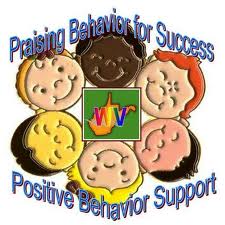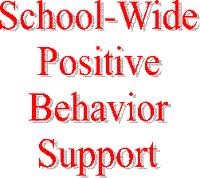Positive Behavior Support
Overview
Two years ago, ALC created the Positive Behavior Support (PBS) Team to help guide students with behavioral and discipline issues improve academically. The team met every morning and different teachers and the counselor attended the meetings. Last year, the team disappeared due to a change in the counselor position. This year, the Positive Behavior Team is returning to the school with small changes.
Advocate for Positive Behavior Support Team
At the beginning of the 2013-2014 academic year, specific students began to be referred on multiple occasions to the counselor for discipline, behavioral, emotional, and drug use problems. After several informal conversations with teachers and the counselor, I decided that I would advocate for the return of the PBS. The Leadership Team approved the return of the team and the changes proposed. Instead of meeting every morning before school, the team would meet once a week to discuss the students referred and agree on a plan that would allow that student to succeed academically. Instead of emailing the counselor with a referral for a student, teachers will create a log on Jupiter Grades and refer the log to PBS. They will select the reasons for the referral and describe the reasons why they are being referred. This year, the team consists of Sandi Drinkward (Lead/ English/AVID Teacher), Maria Kohatsu (School Counselor), and myself.

I learned that this year we tried to implement PBS during a hectic time of the year. Although Sandi and I met to alter the log on Jupiter Grades, we never officially met as a team as planned. Part of the reason as to why we didn’t meet was because of CST testing taking place (the counselor was also the testing coordinator and was busy organizing the testing supplies prior to the week of testing) and AP testing. Although we didn’t meet, we all agreed that we are ready to implement it during the 2013-2014 academic school year.
Standards Met
STANDARD 1: A SCHOOL ADMINISTRATOR IS AN EDUCATIONAL LEADER WHO PROMOTES THE SUCCESS OF ALL STUDENTS BY FACILITATING THE DEVELOPMENT, ARTICULATION, IMPLEMENTATION, AND STEWARDSHIP OF A VISION OF LEARNING THAT IS SHARED AND SUPPORTED BY THE SCHOOL COMMUNITY.
- 1.6 Leverage and marshal sufficient resources, including technology, to implement and attain the vision for all students and all subgroups of students.
STANDARD 2: A SCHOOL ADMINISTRATOR IS AN EDUCATIONAL LEADER WHO PROMOTES THE SUCCESS OF ALL STUDENTS BY ADVOCATING, NURTURING, AND SUSTAINING A SCHOOL CULTURE AND INSTRUCTIONAL PROGRAM CONDUCIVE TO STUDENT LEARNING AND STAFF PROFESSIONAL GROWTH.
- 2.1 Shape a culture in which high expectations are the norm for each student as evident in rigorous academic work.
STANDARD 3: A SCHOOL ADMINISTRATOR IS AN EDUCATIONAL LEADER WHO PROMOTES THE SUCCESS OF ALL STUDENTS BY ENSURING MANAGEMENT OF THE ORGANIZATION, OPERATIONS, AND RESOURCES FOR A SAFE, EFFICIENT, AND EFFECTIVE LEARNING ENVIRONMENT.
- 3.1 Sustain a safe, efficient, clean, well-maintained, and productive school environment that nurtures student learning and supports the professional growth of teachers and support staff.
- 3.2 Utilize effective and nurturing practices in establishing student behavior management systems.
- 3.7 Manage legal and contractual agreements and records in ways that foster a professional work environment and secure privacy and confidentiality for all students and staff.
STANDARD 4: A SCHOOL ADMINISTRATOR IS AN EDUCATIONAL LEADER WHO PROMOTES THE SUCCESS OF ALL STUDENTS BY COLLABORATING WITH FAMILIES AND COMMUNITY MEMBERS, RESPONDING TO DIVERSE COMMUNITY INTERESTS AND NEEDS, AND MOBILIZING COMMUNITY RESOURCES.
- 4.4 Strengthen the school through the establishment of community, business, institutional, and civic partnerships.
- 4.5 Communicate information about the school on a regular and predictable basis through a variety of media.
STANDARD 5: A SCHOOL ADMINISTRATOR IS AN EDUCATIONAL LEADER WHO PROMOTES THE SUCCESS OF ALL STUDENTS BY MODELING A PERSONAL CODE OF ETHICS AND DEVELOPING PROFESSIONAL LEADERSHIP CAPACITY.
- 5.1 Model personal and professional ethics, integrity, justice, and fairness, and expect the same behaviors from others.
- 5.8 Encourage and inspire others to higher levels of performance, commitment, and motivation.
Supporting Documents



